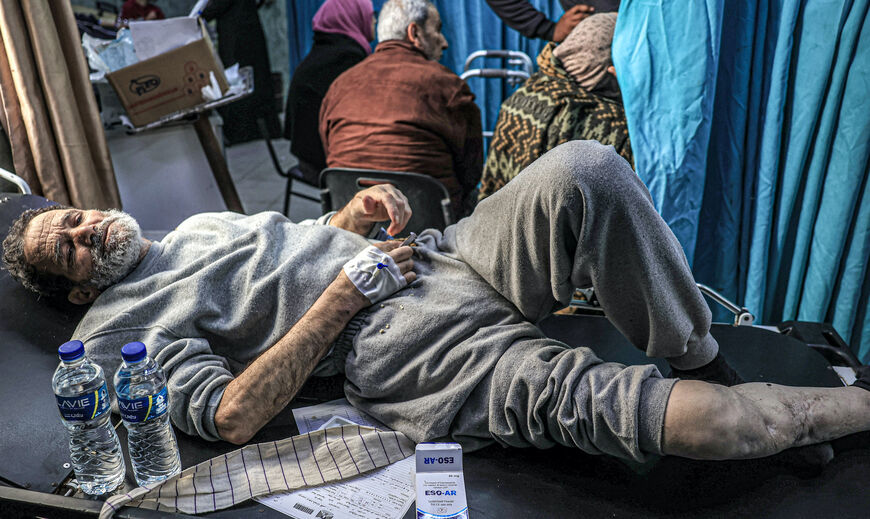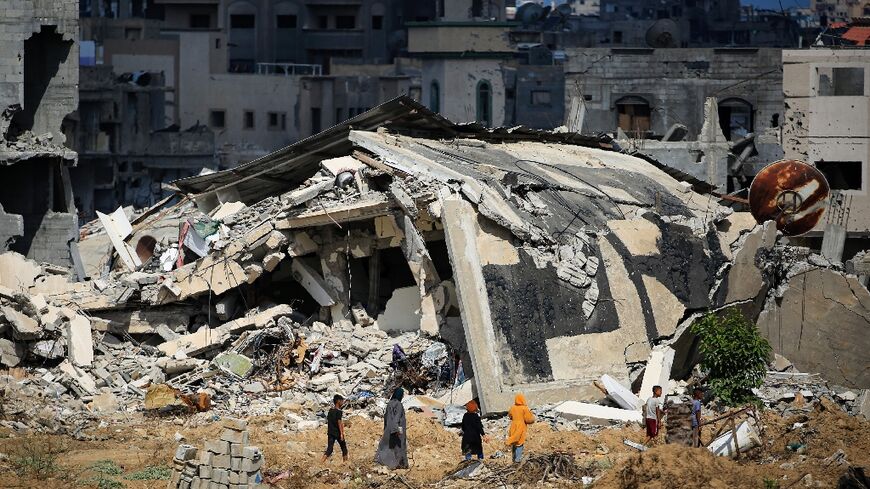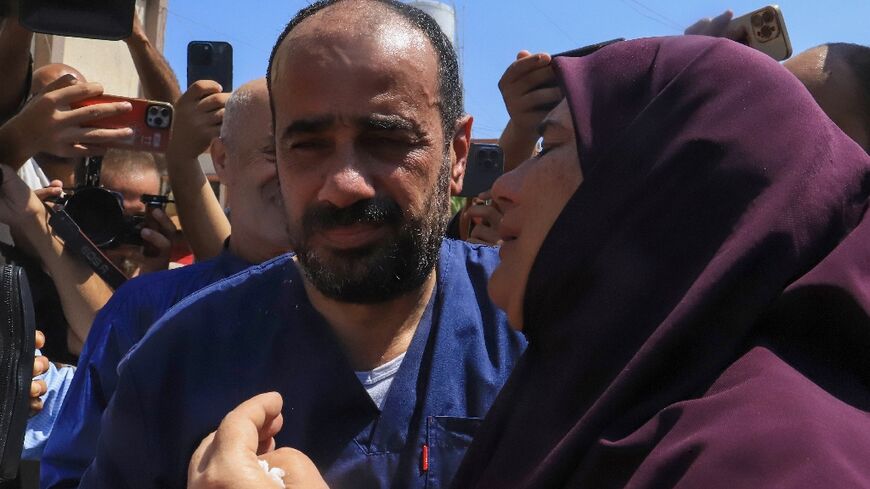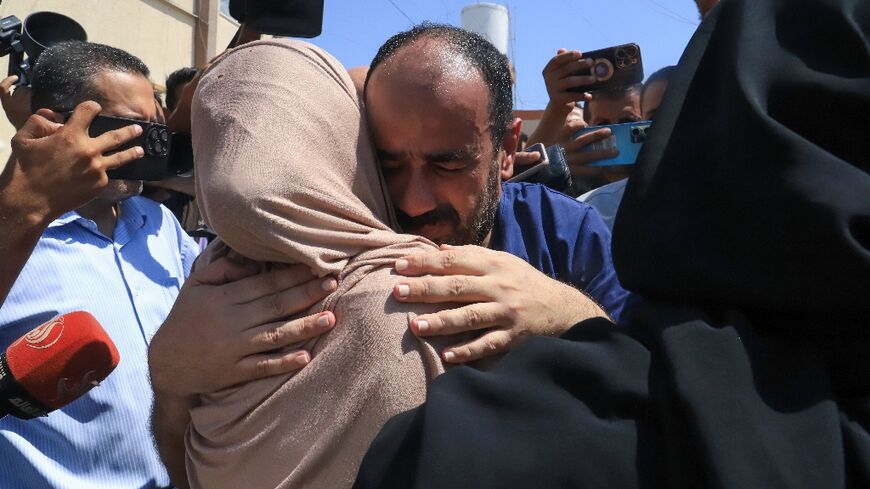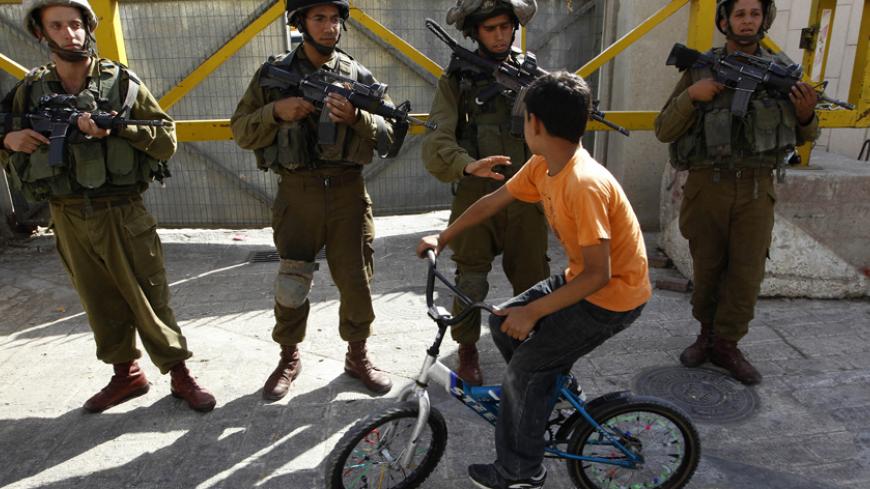What released Palestinian detainees say about torture in Israeli jails
A number of recently released Palestinians are saying they were tortured and abused in detention.
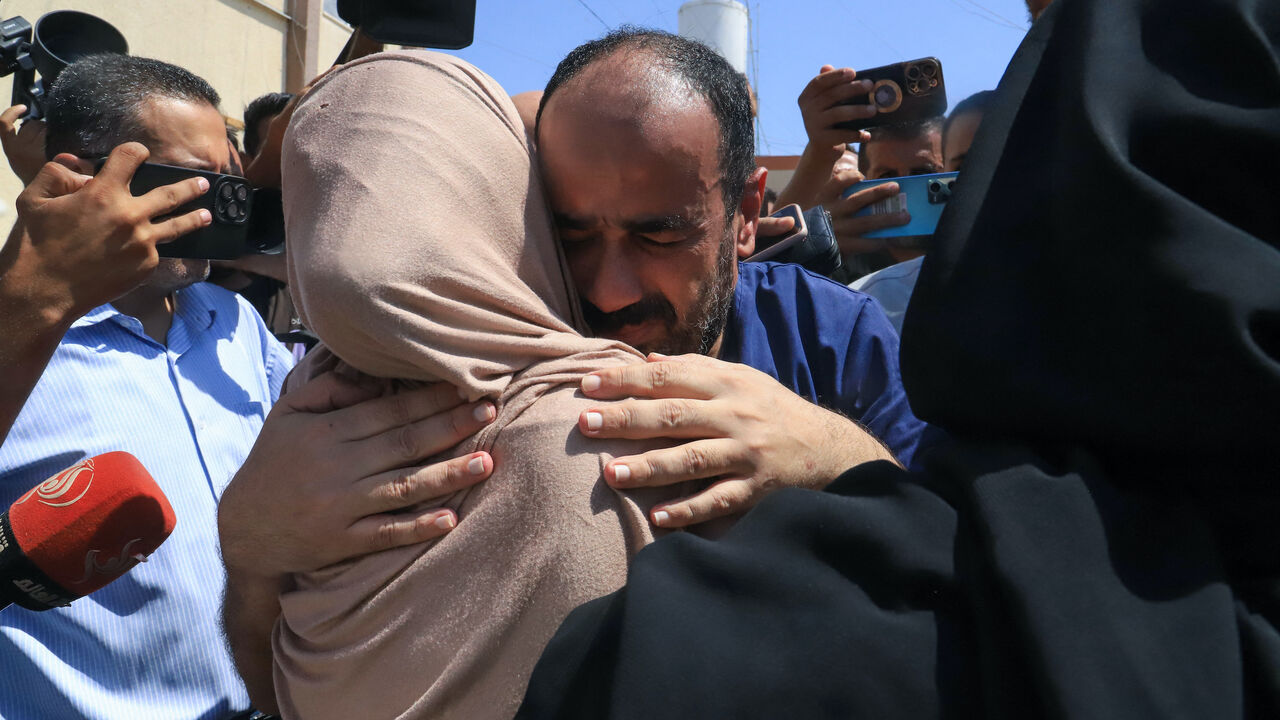
This is an excerpt from Palestine Briefing, Al-Monitor's weekly newsletter covering the big stories of the week in Palestine. To get Palestine Briefing in your inbox, sign up here.
A recent spate of accounts from released Palestinian detainees has put the spotlight on conditions in Israeli jails and point to an increasingly dire situation for inmates. On Monday, the director of Gaza’s Al-Shifa medical complex, Dr. Mohammed Abu Salmiya, claimed he was tortured repeatedly during his seven months in Israeli detention.
At a news conference held shortly after his release, Abu Salmiya said detainees he was held with were subjected to “severe torture” and “completely denied treatment.”
“My little finger was broken. I was repeatedly subjected to hitting on the head, causing bleeding multiple times. There was almost daily torture in the Israeli prisons,” he said.
Abu Salmiya was detained in late November while evacuating the hospital during an Israeli raid. Israel had claimed at the time that he was detained and transferred to questioning “following evidence showing that the Shifa Hospital, under his direct management, served as a Hamas command and control center.”
Hamas and medical workers denied these allegations, and Israel has not released evidence backing its claims.
Following Abu Salmiya’s Monday press conference, a spokesperson for the Israeli Prison Service told CNN that “all prisoners are detained according to the law.”
While international law is clear in forbidding cruel, inhumane, and degrading treatment and punishment for prisoners, the challenge has been how to prove what is happening in the tightly secured and controlled Israeli jails.
Yet strands of evidence have recently appeared indicating that Israeli prison personnel are participating in torture and cruel punishment against prisoners, with prison guards effectively acting as judge, jury and executioner themselves.
The fact that some Israeli officials seek even worse conditions and punishment for Palestinian prisoners has never been a secret. Israeli National Security Minister Itamar Ben-Givr has been calling for harsh and inhumane treatment of prisoners since before the events of Oct. 7. He has publicly advocated denying prisoners basic rights, reducing their basic food intake, rationing the water they can use, and ordering Israeli prison personnel to carry out inhumane and illegal actions. While the extremist Israeli minister’s rhetoric was often brushed aside before Oct. 7, his statements and directives became more accepted and even normalized as the war on Gaza continued.
Evidence of torture and inhumane treatment began to surface once some prisoners whose jail terms had elapsed were released. Photos of released prisoners often juxtaposed next to the way they looked before imprisonment showed frail bodies, and their eyewitness testimonies of Israeli cruelty in jail, total abandonment of normal food and sanitation availability meant that many released prisoners reported having lost dozens of pounds in a brief period. A Palestinian dentist who is a citizen of Israel, Kamal Tanous, was jailed for a year in July 2023 on charges of “incitement” for his social media posts. During his detention, he lost 30 kilograms, or over 65 pounds. In an interview following his release, Tanous said that not only did the Israelis take away the normal food supplies and the opportunity for prisoners to cook their meals, but since Oct. 7, their entire daily food ration was at times just two loaves of bread that had to be shared in their overcrowded jail cells of eight inmates.
Accounts from Israeli lawyers and some medical staff who have been visiting some of the jails also corroborate the horrible situation. As prison authorities continued with these repressive measures that allegedly caused deaths and starvation, the story finally broke. Foreign media outlets, as well as some Israeli publications, recently began increasingly reporting on the situation in Israeli jails using testimonies of those claiming torture and cruel treatment, including the amputation of limbs of Palestinians.
Further evidence of increasingly dire conditions and abuse against Palestinian prisoners is the increasing number of detainees dying in custody.
According to the Palestinian Prisoners’ Club, a group that advocates for rights of detainees, at least 18 Palestinians, six of whom were from Gaza, have died in Israeli jails since the Gaza war began. The group said this was the highest number in an equivalent time span since they began tracking. No investigation has taken place, and there's been no accountability from the international community. Also, multiple complaints by human rights organizations have not affected Israeli prison policies.
Over 9,000 Palestinians from the West Bank have been detained since Oct. 7, the Palestinian Prisoners’ Club said, noting that thousands more had been “forcibly disappeared” from Gaza. The latter number cannot be determined precisely, since Israel has not released information on the number of Palestinians from Gaza it is holding.

